
Colombia, Dispatches, United States
Colombia’s Álvaro Uribe Faces Scrutiny In Washington Over Lawsuit Alleging Drummond Supported Paramilitaries
December 6, 2010 By Roque Planas
WASHINGTON — On Nov. 3, as ex-president of Colombia Álvaro Uribe left a class he teaches at Georgetown University as a visiting scholar, a second-year law student named Charity Ryerson hid behind the corner of the Inter-Cultural Center. Another student perched on a hill in front of her signaled that Uribe was about to pass.
Gliding through a hole in his security detail, Ryerson poked Uribe in the chest with a subpoena to appear for depositions in a civil suit accusing Drummond Company of supporting Colombian paramilitaries. “No! No! No!” Uribe said, throwing his hands in the air, according to Ryerson, who dropped the document at his feet as process servers often do when someone won’t accept a summons.
Uribe’s appointment as a visiting scholar has touched off a controversy at Georgetown. Many observers credit the U.S.-backed leader’s military offense against the FARC — Latin America’s longest lasting guerrilla army — with restoring a measure of security to a country mired in civil war and drugtrafficking violence for over half a century.
“Having such a distinguished world leader at Georgetown will further the important work of students and faculty engaging important global issues,” according to Georgeown’s president, John DeGioia.
But a group of professors and students at Georgetown University who have banded together as the “Adiós Uribe Coalition” accuse the Colombian leader of involvement in human rights abuses ranging from support of paramilitaries to domestic espionage.
Such allegations have plagued the controversial Colombian politician for years, though conclusive evidence of Uribe’s alleged involvement in human rights abuses has not surfaced. But Washington-based attorney Terry Collingsworth has taken advantage of Uribe’s visiting scholar appointment to attempt to force a showdown.
***
Terry Collingsworth has dedicated much of the last few years to suing American multinational companies in U.S. civil court on the basis of an obscure, 18th-century law called the Alien Tort Claims Statute, which allows foreigners to sue U.S. citizens for damages over violations of international law or treaties to which the U.S. is a signatory.
Legal scholars believe lawmakers intended the Alient Tort Statute to provide a framework for resolving international trade disputes, but it fell out of use for over a century before pioneers including Collingsworth repurposed the law as a tool to bring multinational corporations to court to face allegations of human rights abuses. In a landmark case against Unocal Corporation on behalf of Burmese victims of forced labor, Collingsworth secured a favorable settlement after nine years of litigation.
Colombia has proven a breeding ground for the Alient Tort Claims lawsuits that Collingsworth specializes in. In addition to his latest case against Drummond — Collingsworth has filed at least three — he has represented Colombian plaintiffs in cases against the Coca-Cola Company, Dole and Chiquita.
The current case against Drummond was brought by the heirs to 113 Colombians murdered by the United Self-Defense Forces of Colombia (AUC, in Spanish), who suspected them of sympathizing with guerrillas. The AUC was Colombia’s largest rightwing paramilitary group, but had been largely demobilized by 2006, lured by government offers of light prison sentences in exchange for testifying about the group’s crimes.
Based largely on the testimony of demobilized paramilitary leaders, the 174-page complaint (.pdf) alleges that by 1999 Drummond began colluding with the AUC after leftist guerrillas targeted the company’s mining and transportation operations. Key witnesses include former paramilitary leaders Salvatore Mancuso, Rodrigo “Jorge 40” Tovar, Jhon Jairo Equivel Cuadrado, as well as Rafael García, a former official of Colombia’s intelligence service, known as the DAS.
Drummond has consistently denied supporting any illegal groups in Colombia. The company’s public relations office declined to comment for this article.
Uribe’s visiting scholar position at Georgetown provided Collingsworth with a unique opportunity. The controversial ex-president of Colombia would visit Washington, where Collingsworth’s office is located, twice a semester for the next year to give lectures.
The complaint accuses Uribe of having a role in supporting paramilitaries tied to the murder of Colombian unionists, though Uribe is not a defendant in the case.
“When Colombian President Uribe was still the Governor of (the province of) Antioquia he implemented the plan to establish the government-registered front groups called ‘Convivirs’ to allow the AUC to collect government and private funds to support the military activities of the AUC,” the complaint alleges. “Further, the Convivirs provided legal status to the AUC and allowed the Colombian government to coordinate activities with it.”
According to Adam Isacson of the Washington Office on Latin America, it remains to be seen whether or not the plaintiffs can prove the allegation that Uribe established the Convivirs as a front for the AUC. “Certainly paramilitaries benefitted from it,” Isacson said of the Convivirs in a telephone interview. “But there’s no smoking gun there that says this is a deal for the AUC.”
However, Isacson added that under Uribe, paramilitaries saw their influence grow. “Paramilitaries thrived as never before in Antioquia when Uribe was governor,” Isacson said.
A District of Columbia federal judge granted Collingsworth’s request on Oct. 26 to subpoena Uribe to appear for depositions. “Mr. Uribe has direct knowledge of several key issues in the case,” Collingsworth said in a press release.
Those issues, according to the statement, included government military support of Drummond mining facilities, the relationship and level of cooperation between the military and the AUC, and “the efforts by the Colombian government during Mr. Uribe’s tenure to suppress evidence of Drummond’s relationship to the AUC.”
***
Whatever Uribe may know about those issues, Collingsworth will have to wait to find out.
On Nov. 22 when Uribe was called to appear for depositions at Collingsworth’s office in Washington, he was visiting Honduras, where he received a congressional award for his contributions to democracy.
Uribe’s attorney, Gregory Craig — President Barack Obama’s former top White House lawyer — said in a telephone interview that the government of Colombia had invoked sovereign immunity for Uribe, a doctrine that allows government figures immunity from prosecution for tort claims for acts committed as part of their duties in office. Craig said he informed Collingsworth of the Colombian government’s decision, but did not contest the subpoena.
“Often when people claim sovereign immunity, they don’t appear. The whole purpose of claiming sovereign immunity is that they don’t have to,” said Bert Neuborne, a law professor at New York University.
Ignoring the subpoena will not necessarily bring disciplinary action against Uribe, Neuborne said. Collingsworth would have to file a motion to get a hearing first. “They won’t punish him for not appearing, without a hearing to determine whether he was obliged to appear.”
Collingsworth did not return several phone messages and emails seeking comment for this report.
Uribe’s decision not to appear did not surprise Ryerson. She said that prior to the Colombian government’s intervention, Uribe had claimed she assaulted him when serving him with the summons. “Walking into it, I knew they would try to charge me with assault,” Ryerson said, noting that a charge of assault can invalidate the service of a summons.
Ryerson also said that the Georgetown administration had attempted to prevent her from serving the summons at the university. “The plan was to serve him before a class he was teaching at 3:15,” Ryerson said. “As we tried to serve him the first time, campus police called backup because they wanted to help him to evade service of process. Administrators were also there telling us he couldn’t be served on campus.”
The Georgetown communications office would not answer questions about the administration or campus police’s actions on the day Ryerson served Uribe’s summons, but forwarded a press release saying “Georgetown is not a party to this suit. The University does not have a policy forbidding the service of process on its property, but does not, as a general matter, work with process servers to facilitate service.”
Uribe’s attorney declined to comment regarding the allegation of assault, as did the Georgetown University communications office and the campus police.
Whatever action Collingsworth plans to take regarding the Uribe subpoena, Ryerson continues to believe that Uribe will come to testify in Washington. “Eventually, he’s going to have to appear. It’s not clear when, but he will have to,” Ryerson said. “He’s been compelled by a court to do so.”
Image: Center for American Progress @ Flickr.
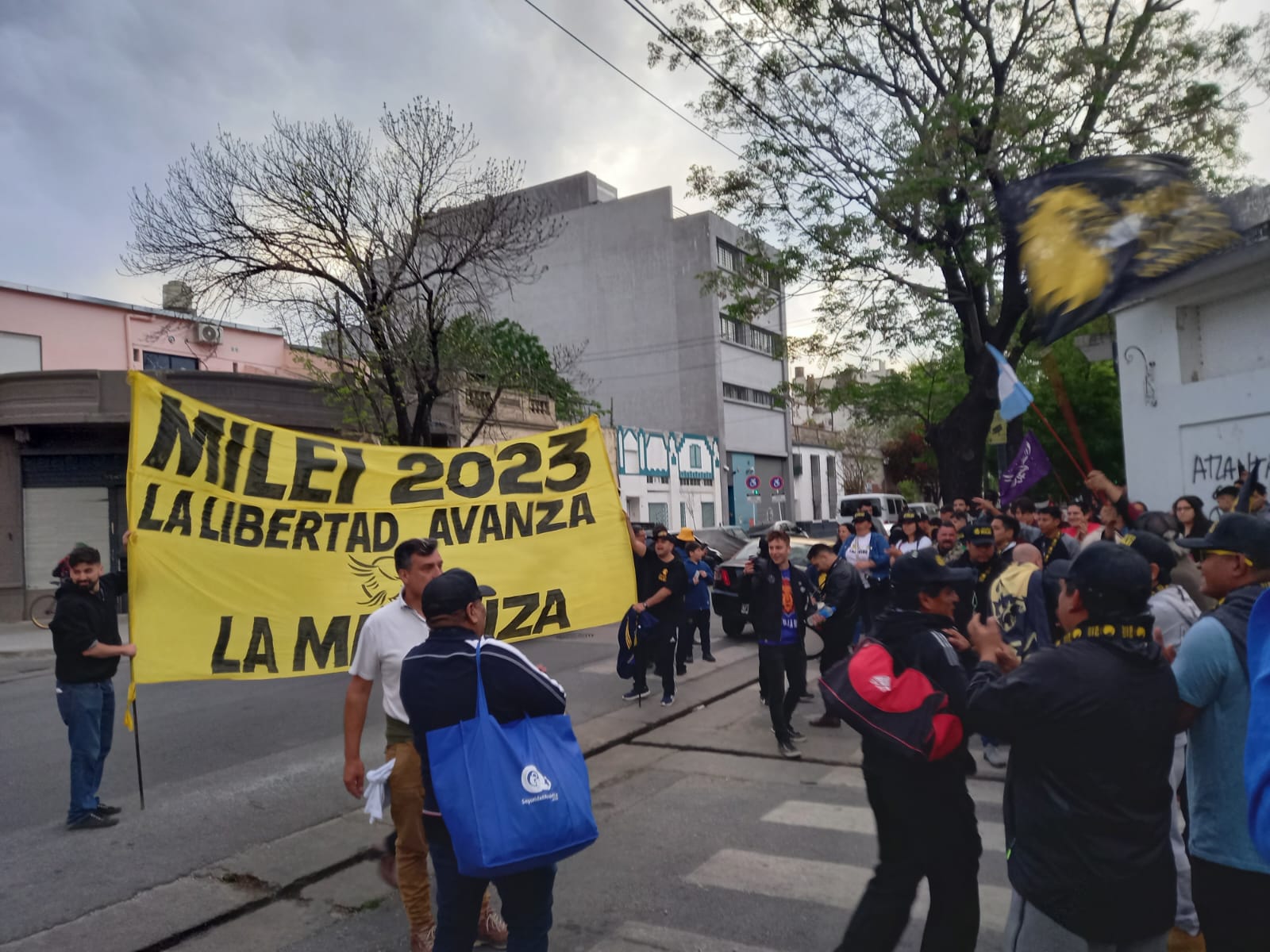
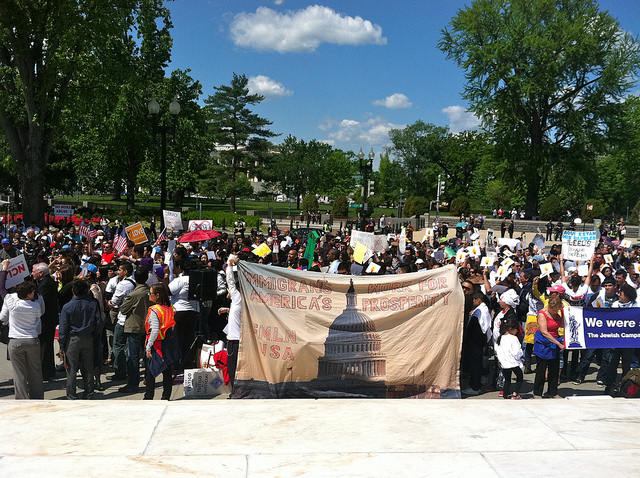
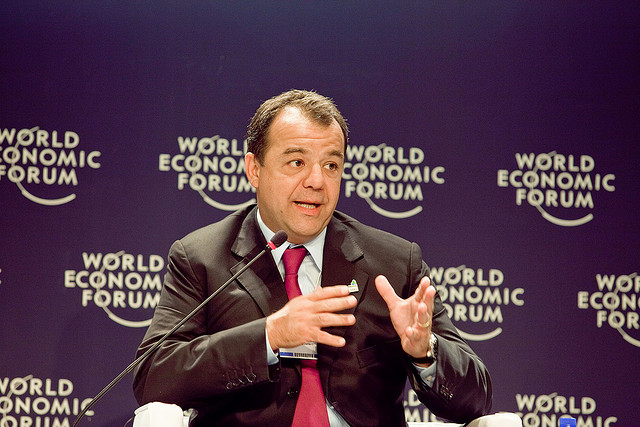
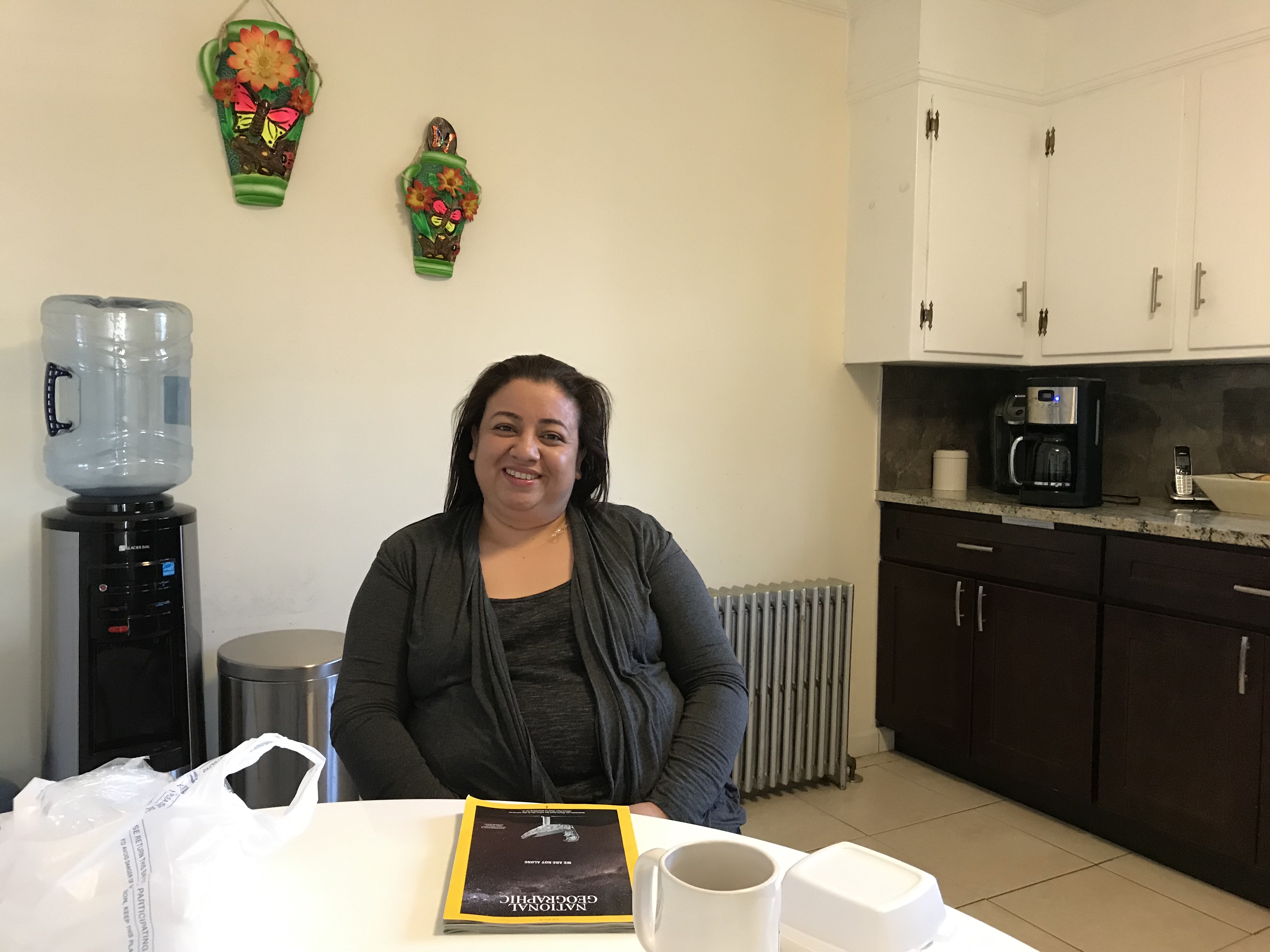
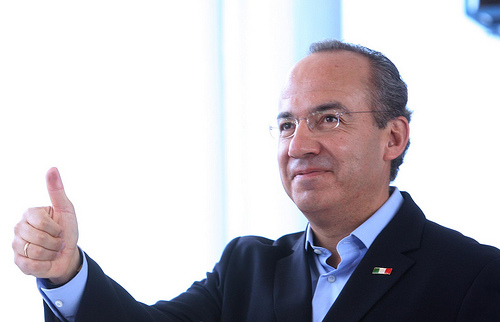
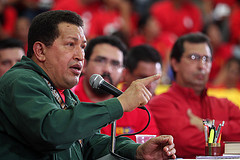
7 Comments
[…] Allegations of human rights abuses have followed ex-president of Colombia Álvaro Uribe to Washington, where he is a visiting scholar at Georgetown University. While conclusive evidence of criminal wrongdoing has not surfaced, Georgetown students and the attorney for Colombian plaintiffs in a civil lawsuit against the Drummon…. […]
Here is another view on the motives of Mr. Collingsworth:
From the Bogota publication portafolio:
Un tal abogado Collingsworth
Terry Collingsworth es el nombre que oyen muchos habitantes de zonas violentas en Colombia. Se reúne con presuntas víctimas y los insta a demandar a multinacionales en tribunales de EE. UU., con la tesis de que estas últimas colaboraron activamente con paramilitares en la comisión de distintos crímenes.
Collingsworth es socio y abogado del bufete Conrad & Scherer, y aunque muestra su labor ante la opinión pública como un asunto de altruismo, la realidad es que su oficina cobra altas cuotas a sus clientes (las víctimas) en caso de lograr el pago de indemnizaciones por parte de las empresas que demanda.
En los últimos días, el abogado Collingsworth ha recibido especial atención de la prensa. Su voz se oyó en La W, y el nombre de su oficina aparece citado en los informes de la revista Semana y en la última columna de Natalia Springer, en El Tiempo, por el supuesto llamado de la justicia norteamericana al ex presidente Álvaro Uribe dentro del caso que se sigue contra la Drummond.
Lo que algunos medios desconocen es que al tal abogado Collingsworth lo precede una importante lista de mentiras. Como parte de su estrategia de litigio y la de los defensores de presuntas víctimas o plaintiffs lawyers como él, Collingsworth utiliza a los medios para ejercer presión sobre sus blancos y favorecer su negocio recurriendo a montajes.
No es la primera vez, por ejemplo, que acusa a la Drummond. Hace 8 años presentó testimonios que los jueces unánimemente calificaron como falsos. En el 2009 también lo intentó con testigos que fueron nuevamente cuestionados, y este año, en una Corte de Los Ángeles, recibió un revés en su alegación contra la bananera Dole, representando a un grupo de ‘víctimas colombianas’. El dichoso abogado fabricó la declaración del paramilitar ‘Carlos Tijeras’, que el tribunal no dudó en calificar de mentirosa y acomodada. El juez del caso advirtió que el “supuesto testigo tenía claros incentivos para mentir”.
Pero quizás uno de los montajes más viles del abogado Collingsworth tiene que ver con un caso contra Chevron/Texaco en el que los acusaba de haber contaminado una región en Ecuador causando con ello cáncer a los pobladores (sus clientes). Lo que vino a descubrirse después es que las ‘víctimas’ a quienes Collingsworth usó nunca habían padecido de cáncer. El tribunal del distrito norte de California que llevaba el caso sancionó a este abogado y a los otros representantes de los falsos perjudicados, por un montaje, cuyo único propósito era sacarle plata a la petrolera.
El tráfico de ilusiones de ciertas víctimas que buscan reparación en litigios fuera de Colombia es un negocio tan asqueroso como recurrente. Lo grave es que no sólo van detrás del dinero de las multinacionales, sino que, como María Isabel Rueda denunció en una columna publicada hace meses en El Tiempo, algunos colectivos de abogados recurren al “cobro de un porcentaje en dólares sobre las indemnizaciones con las que los tribunales internacionales condenan al Estado colombiano”.
La verdad así está muy lejos de conocerse. Lo que ahora tenemos son manipulaciones de testigos y abogados que sólo persiguen cuantiosos honorarios, sin importar si deben mentir para conseguirlos.
JOSE MANUEL ACEVEDO M. Analista
Sr. José Manuel Acevedo, felicitaciones, Ud. me hace pensar en el tamagno lavado de cerebro q les harán a todos , com Ud., borregos de las multinacionales q han saqueado no solo Latinoamérica, sino todo este planeta, mas no hay q decir, porq en el fondo se pelea por los intereses de las multinacionales, q en paises como Colombia, y ahora lamentablemente Mejico participan sobretodo en los dos negocios mas lucrativos: La guerra y el narcotráfico, eso lo sabe aquí cualquier persona con uso de razón, comprende???
[…] article focuses on the controversy surrounding Álvaro Uribe, ex-president of Colombia, who was subpoenaed to testify for civil lawsuit against Drummond Mining […]
[…] to evade the process of law in the United States, to ensure he can’t be held accountable for his crimes in Colombia. […]
[…] being served a subpoena on Georgetown’s campus, Uribe attempted to evade service of process in the United States, to ensure he can’t be held accountable for his crimes in […]
[…] legacies of both Uribe and Santos have been tainted by scandals accusing them of human rights abuses, supporting paramilitaries and domestic espionage. In August Uribe was accused of ordering the country’s domestic intelligence agency to spy on […]
Comments are closed.